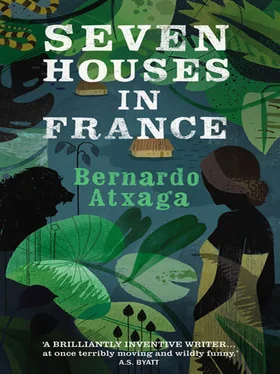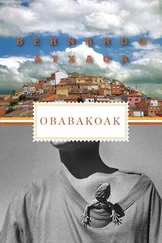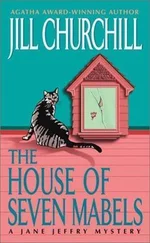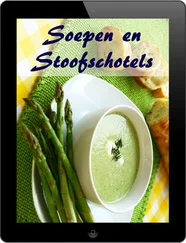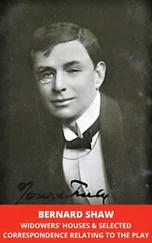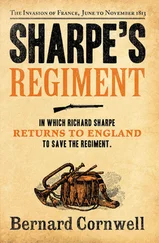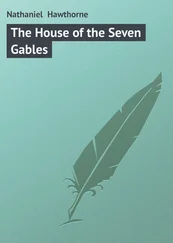He opened the storeroom door and stood for a while studying the provisions piled up there. It was full to bursting. Apart from the anisette and other sweet liqueurs, there were dozens of crates of champagne and no shortage of Martell and Martini either. He saw sausages and salamis hanging from the ceiling, and on a plank, a foot or so above the ground, was a row of cheeses wrapped in cloth. Lalande Biran had obviously put in a special order before the visit of the priests and the journalist. All that was missing from the storeroom was the figure of Donatien. His usual corner was empty.
Van Thiegel walked up to the higher part of Yangambi, and when he reached the square, his eye was caught by a detail he hadn’t noticed before. The coloured ribbons that Lalande Biran had ordered to be hung from the palm tree did not form a cupola, but a half-cupola, for they extended only as far as Government House, and not in the other direction, towards his house. So his marginalisation had not begun with the arrival of the journalist and the priests: it had been planned long before.
‘Oh, Biran!’ he cried.
He continued walking towards the firing range, and as he passed the slaughterhouse, his mind split in two. He remembered seeing the cheetah there, with a bullet hole above its left eye, and at the same time, although only in his imagination, he saw Christine walking down a Paris street, wearing a cheetah-skin stole about her neck. To these were added another two images. In the first, he saw Chrysostome strolling into the village one day, carrying the rhinoceros horn on his back. In the second, he saw Christine sitting on an armchair in her house in rue du Pont Vieux, and behind her, fixed to the wall, was that same horn. Lalande Biran would lie to Christine and tell her that he himself had hunted and killed both the cheetah and the rhinoceros. He had always been slow to acknowledge other people’s qualities.
‘Oh, Biran!’ he cried again.
The seven hundred rubber-tappers he found gathered on the firing range seemed particularly quiet, sitting on the ground in silence, most of them eating. The NCOs greeted him with the usual words: ‘Nothing to report, Lieutenant!’ But there was something to report. Smoke was rising from twenty or so barbecues and there was an all-pervasive smell of roast antelope. It was a scene prepared by Lalande Biran for the journalist’s Kodak camera. It seemed, however, that there had been more than enough meat, and the banquet was continuing.
At one end of the firing range, two figures appeared, one very tall and wearing a white hat and the other very short and with grey hair. Donatien was walking towards him, followed by Livo, who was carrying a basket over one arm.
‘We’re going to the club, Lieutenant,’ said Donatien. ‘We’ve chosen some good cuts of meat to roast on the barbecue.’
Livo lifted the lid of the reed basket and showed him the meat. They were cuts taken from near the tail, the tenderest part of the antelope, and Livo was planning to barbecue one as normal, while the other he would serve with a cheese sauce. There was more than enough cheese in the storeroom. The Captain had had it sent up from Léopoldville.
‘Yes, I saw it,’ said Van Thiegel. ‘Our good Captain has brought many other delicacies too.’
‘Sugar,’ said Livo.
‘Salt,’ said Donatien.
They were joking, deliberately saying nothing about the champagne and the other drinks. Van Thiegel looked up past the seven hundred rubber-tappers and beyond the columns of smoke rising from the barbecues. There was a glint of pride in his eyes.
‘When I was young, as a cadet at the Military Academy in Brussels, we invented a game,’ he said, as if these words were written on the sky and he was reading them. ‘We would pool our money and go round the bars, but we had to order a different drink in each bar. So if we drank wine in one bar, we would order beer in the next, and then gin, cognac or anisette and so on. Of course, we had them serve us the milder drinks in large glasses and the stronger ones in small glasses. And so it would go on until the weakest could no longer stand. Then for those of us with more stamina, it was time for love, and we would take whatever money was left in the pot and set off to see the ladies.’
Donatien and Livo laughed. Van Thiegel was still staring up at the sky.
‘I understand that many students still keep up the tradition,’ he said. ‘And that pleases me.’
‘Of course,’ said Donatien. His Adam’s apple moved up and down in his neck. He felt impatient. He hadn’t had time to take off the dress uniform he had worn for the embarkation ceremony for the Virgin, and he was sweltering. And even though he was wearing a hat, he could still feel the sun beating down on his head.
‘If the Captain ever claims he invented that game, don’t you believe him. We invented it, the first company of fusiliers in Brussels,’ Van Thiegel told them. He was no longer looking at the sky.
On their way back to the Club Royal, Van Thiegel and Donatien stopped off to change their clothes, while Livo went on ahead to prepare the meat. He was in serious mood. He didn’t want the day to end without him being able to take a few boxes of biscuits to the mugini , along with some salami and cheese perhaps. His daughter would be pleased, and the village children even more so.
Van Thiegel took a sip of gin.
‘The flag is still flying high above the palace in Brussels,’ he said, and he saw Donatien and Livo smile. Behind them, ten or twelve chimpanzees appeared to be listening to his words. ‘Yes, the flag is still flying high above the palace in Brussels,’ he said again. ‘It’s still the lair of the most passionate lover the world has ever known. Oh yes.’
The images were starting to spin around in his head again as if on a roulette wheel, but his tongue could not follow them. It felt thick and clumsy in his mouth.
‘There’s never been another lover like Léopold II, and it will be years before anyone breaks his record. I’m no innocent myself, and with a little luck I’ll soon be able to chalk up woman number 200. Beside him, though, I’m a mere babe. As for Chrysostome, well, as for Chrysostome …’
Donatien and Livo finally laughed. The chimpanzees did not. They remained frowning and attentive, looking at the men. Livo poured some anisette for himself, Van Thiegel and Donatien. The roulette wheel briefly stopped spinning and showed Van Thiegel the image of his father.
‘My father was never a supporter of the King, and sometimes, at home, he would start saying bad things about him over supper. He said the King squandered millions on women, that he’d given a brooch worth 100,000 francs to the dancer María Montoya. This enraged him, but instead of getting angry with the King, he got angry with me and my mother and sometimes hit us. He was very free with his hands he was, sharp-tempered, sharp-eyed and sharp-eared too, and he could probably have amounted to something in the world if only he’d been able to control his drinking. There’s nothing wrong with drinking, but you can’t get drunk every day.’
He raised one arm and pointed his index finger.
‘Anyway, my father used to hit me, I don’t deny it. When I was a child, that is, but not once I’d joined the Military Academy.’
He burst out laughing.
‘The day I went home on leave for the first time, my father was in one of his rages, not with the King, but with the man in charge of the stevedores at the port. And he tried to pick a fight with me, telling me to bugger off in my fusilier’s uniform, telling me to get out of his sight. I didn’t move. He pushed me, almost knocked me over. After all those years spent loading and unloading ships, he was a strong man, but I was stronger, at least I was then. I grabbed him by the throat and lifted him about eight inches off the ground. He looked at me, surprised, as if it had never occurred to him that his son might be stronger than he was. I’d been lifting weights at the barracks, you see. His eyes started to go red, and his face turned scarlet too. When I let him go, it took him about ten minutes to recover, coughing and retching he was. He didn’t ever try to knock me about again. And he stopped beating my mother too. He wasn’t a bad man, my father, he just had a nasty habit of hitting people. Yes.’
Читать дальше
